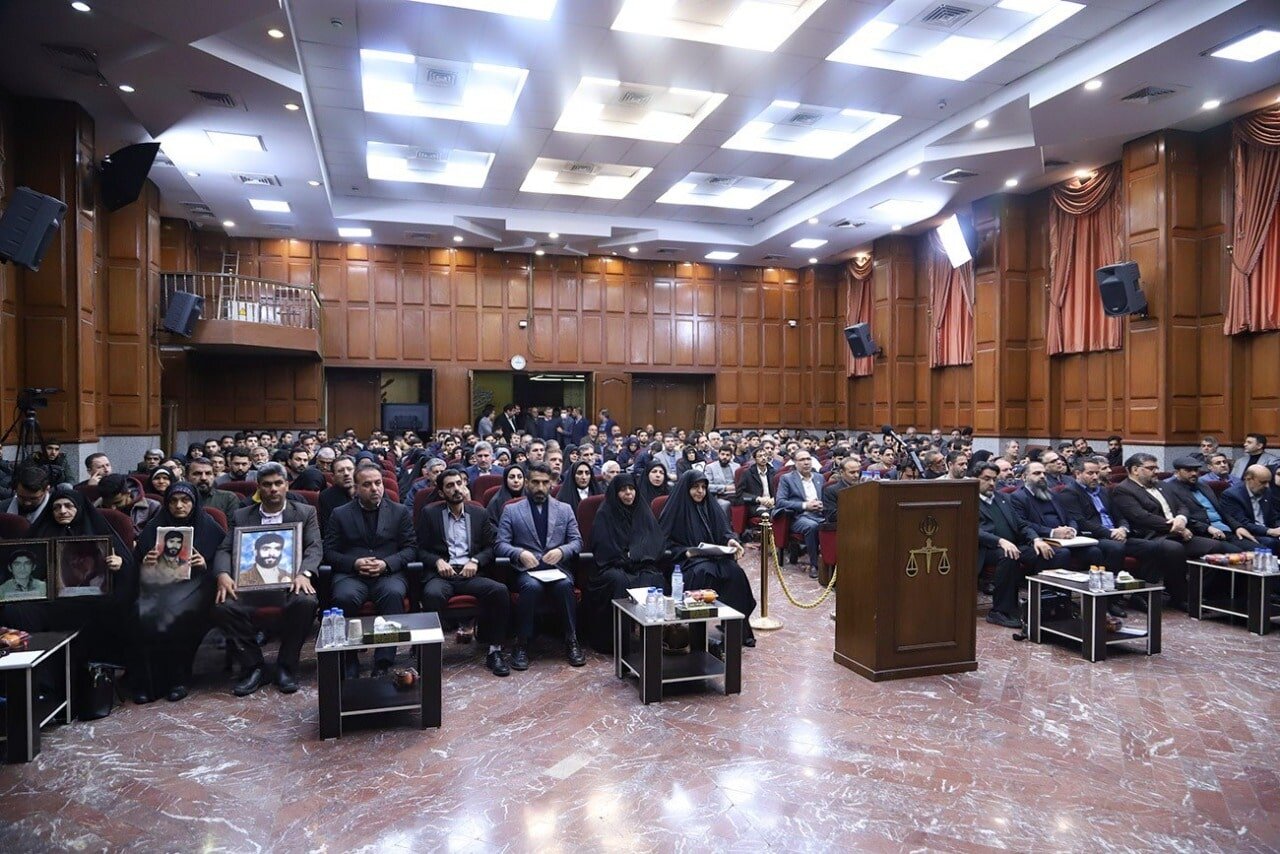Families of slain divers seek justice against US in Tehran court
Families of slain divers seek justice against U.S. in Tehran court
TEHRAN – The International Affairs Court in Tehran, Branch 55, held its second session on Monday regarding a lawsuit filed by the families of Iranian divers martyred in 1986 during Operation Karbala-4 in the Iran-Iraq War.

Presided over by Judge Majid Hosseinzadeh, the case has drawn significant attention for its focus on the complicity of the United States in the tragic deaths of 175 Iranian soldiers.
Judge Hosseinzadeh opened the session by declaring the court's jurisdiction over the case, which involves claims from 306 individuals across 15 provinces against 65 defendants, including the U.S. government and its officials.
The plaintiffs are seeking material, moral, and punitive damages for the martyrdom of numerous Iranian citizens.
Judge Hosseinzadeh emphasized the legal basis for the court's authority, citing Article 34 of the Iranian constitution, which guarantees every individual's right to seek justice.
He also referenced specific laws mandating the Iranian government and judiciary to pursue compensation for crimes committed against Iranian nationals by foreign states.
Legal arguments and historical context
Ezzeddin Soleimani, the attorney representing the families, delivered a wide-ranging argument highlighting the U.S.'s role in supporting the Ba'athist regime of Iraq during its 1980s aggression against Iran.
He asserted that U.S. actions amounted to violations of international humanitarian law, war crimes, and crimes against humanity.
"In international law, as in domestic law, aiding another state in unlawful acts can attribute responsibility," Soleimani said.
He argued that the U.S. took biased positions during the Iran-Iraq War, violating international norms.
"The U.S.'s support facilitated the martyrdom of these brave divers," the attorney said.
Soleimani further elaborated that U.S. financial, logistical, weapons, and intelligence support had been crucial in the failure of Iran's Operation Karbala-4, which led to the capture and execution of the divers.
He also pointed out that David Crist, a former advisor to the U.S. State Department, confirmed in a 2013 interview with a British outlet that the U.S. had supplied Iraq with detailed intelligence on Iranian operations, including Operation Karbala-4.
According to Soleimani, U.S. intelligence, including aerial and satellite imagery, was provided to the Ba'athist regime, enabling Iraqi forces to anticipate and counter Iranian moves effectively.
Operation Karbala-4, launched in December 1986 during the Iran-Iraq War, was a pivotal but tragic endeavor for Iran.
Intended as a large-scale offensive to capture the strategic Al-Faw Peninsula, this operation was compromised by the intelligence support of the U.S. to Saddam Hussein's Ba'athist regime.
It led to the martyrdom of many Iranian divers, some of whom were captured and buried alive. Iran uncovered hundreds of bodies of these divers in southern Iraq in 2017, providing some closure to the families of the martyrs.
‘Buried alive with hands and feet bound’
The session also heard emotional testimonies from the families of the martyred divers.
Hamid Gharibi, the son of Martyr Bahram Gharibi, recounted the traumatic experience of learning about his father's capture and execution, detailing the severe psychological impact on their family.
Martyr Mohammad Ali Salajegheh’s brother addressed the court, emphasizing that Iraq fought Iran to safeguard Western interests.
He elaborated that the U.S., along with other Western countries, provided extensive financial, military, and technological support to Iraq to thwart Iran's victory.
"On behalf of my family," he pleaded, "I request the court to condemn the U.S. government, considering all judicial damages."
Subsequently, the sister of Martyr Abubasir spoke, highlighting that the divers were merely defending Iran's territorial integrity when they were captured by Saddam Hussein's Ba'athist regime with U.S. backing.
She described the horrific fate of the divers, who were buried alive with their hands and feet bound.
She conveyed the enduring pain and psychological trauma experienced by the families, stating, "We have been grappling with inconsolable grief and numerous psychological traumas from losing our loved ones for years."
She further argued that the U.S. played both a direct and indirect role in supporting Iraq during the war.
Judge Hosseinzadeh concluded the session by ordering the recording of statements from U.S. officials acknowledging the provision of strategic information to Iraq.
He indicated that the court would issue a ruling within the legal timeframe, reflecting on the extensive evidence and testimonies presented.
source: tehrantimes.com